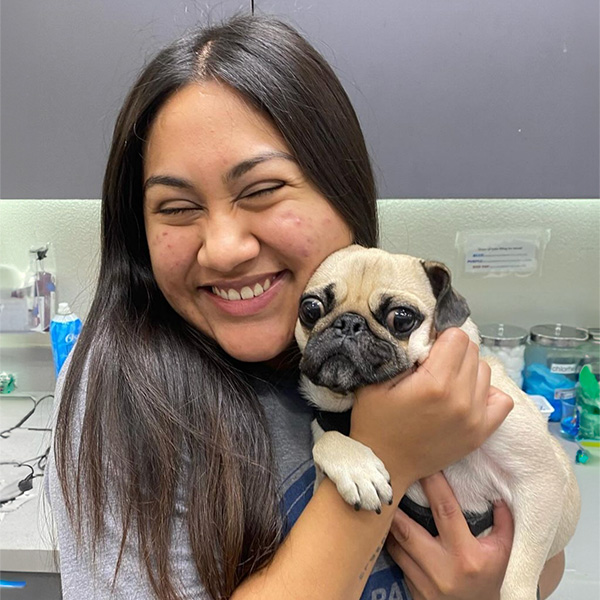Lifestyle
Tick-Borne Diseases in Dogs
— By Dr. Ivan Alvarez — Ticks can do more than simply take blood meals and leave gnarly bite wounds on your pet; they can also transmit harmful, even deadly, diseases. Some species of ticks can transmit bacteria, viruses, and parasites that can cause illness in humans and animals. We classify these illnesses as tick-borne…
Read MoreFeline Asthma
— By Dr. Gabriella Castillo — Asthma is not just a human condition; our feline friends can suffer from it too. Feline asthma, often called feline allergic bronchitis, is a respiratory disease that affects a cat’s airways, causing difficulty with breathing. While it might sound alarming, with the proper care and management, cats with asthma…
Read MoreSeizures in Dogs and Cats
— By Dr. Breckyn Clark — Watching your pet experience a seizure can be a frightening and overwhelming moment for any pet owner. Seizures can come on suddenly and may leave you feeling unsure of how to help or what steps to take next. While they can be caused by various issues, understanding what to…
Read MorePreventing and Treating Obesity in Indoor Cats
Obesity is not just a cosmetic issue; it’s a serious health concern for our cats. Understanding how to prevent and address obesity in indoor cats is crucial for their well-being and longevity. This article delves into why obesity is a critical issue, how to determine if your cat is overweight, and practical steps for both…
Read MoreYour Furry Furry One is Getting Older: 5 Essential Tips
— By Dr. Kathryn Sarpong, DVM — Has your cat stopped jumping on the back of the sofa, or has your dog started slowing down on his walks? These can be signs of arthritis or aging. Most dogs are considered senior after 7 years of age, while cats after age 10. But just like us,…
Read MoreIntervertebral Disk Disease in Pets (IVDD)
— By Dr. Gabriela Castillo, DVM — Intervertebral disk disease, or IVDD, is a common neurologic (nerve) disorder that occurs primarily in dogs and rarely in cats. It occurs when an intervertebral disk ruptures and compresses the spinal cord. The spinal cord is protected by the vertebrae, which are the bones of the spine. In…
Read MoreCanine Pyometra, Everything You Need To Know
What is a pyometra? The name defines itself: “pyo” (pus) and “metra” (uterus). In its simplest form, it is an infection of the uterus. What causes pyometra? It is a combination of hormonal changes and bacterial overgrowth within the uterus’s lining. As the female dog continues to undergo several heat cycles, the lining of the…
Read MoreUnderstanding Feline Leukemia Virus: Testing, Symptoms, and Prevention
If you are bringing in your new kitten, taking in your adult cat to the veterinarian for the first time, or have a sick kitty, you may hear your veterinary team recommend a test for Feline Leukemia Virus (FELV). This is an immune virus that effects our domesticated cats and unfortunately can have a high…
Read MoreMy Dog is Pregnant… What Now?
— By Dr. Breckyn McLean, D.V.M — Congratulations! Your dog’s pregnancy can be an exciting time for you and your family. There are quite a few recommendations during this time to help your dog maintain a healthy pregnancy. Below are a few facts, tips, and tricks to help care for your dog’s needs during this…
Read MoreHeartworm Disease and Prevention in Cats
— By Dr. Chris Campbell, DVM — What is Heartworm Disease? Heartworm disease is a serious but easily preventable condition that can affect several different species. While it is more often diagnosed in dogs, we do see heartworm disease in our feline companions, too. Heartworm disease is caused by worms that live in the heart…
Read More









